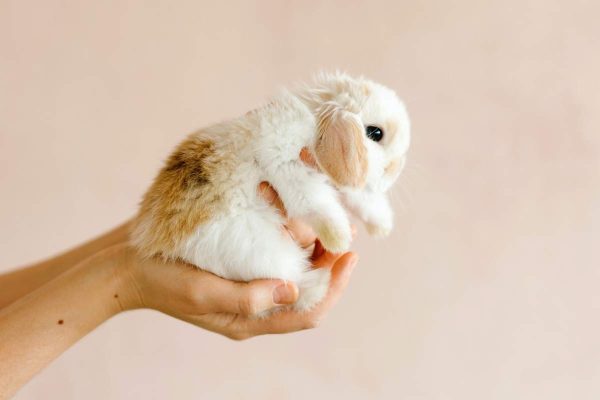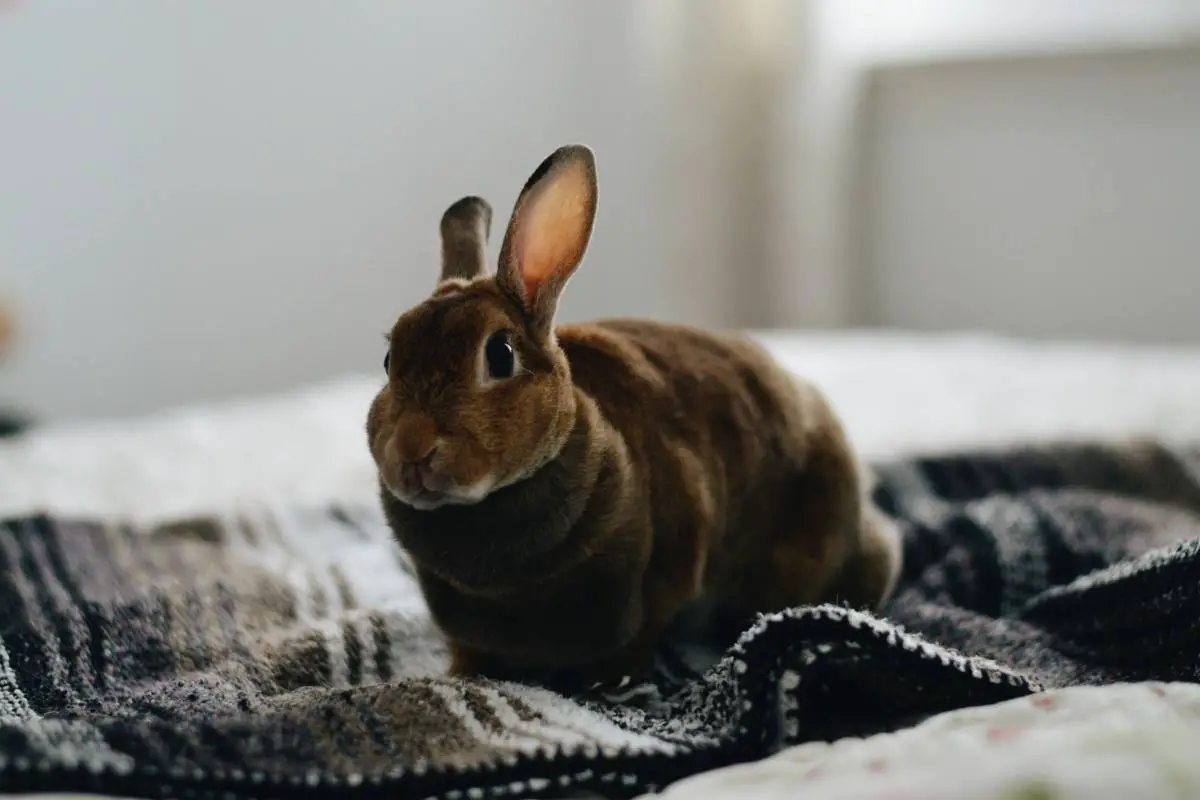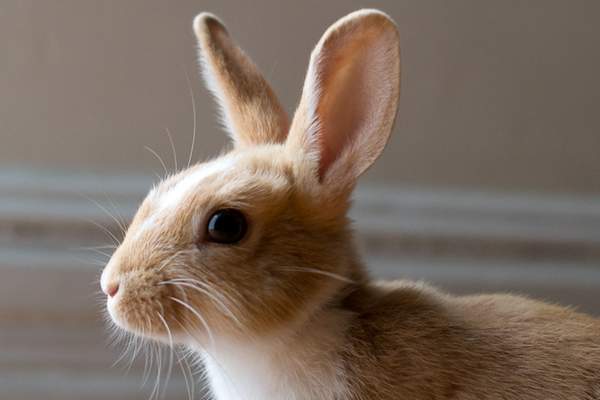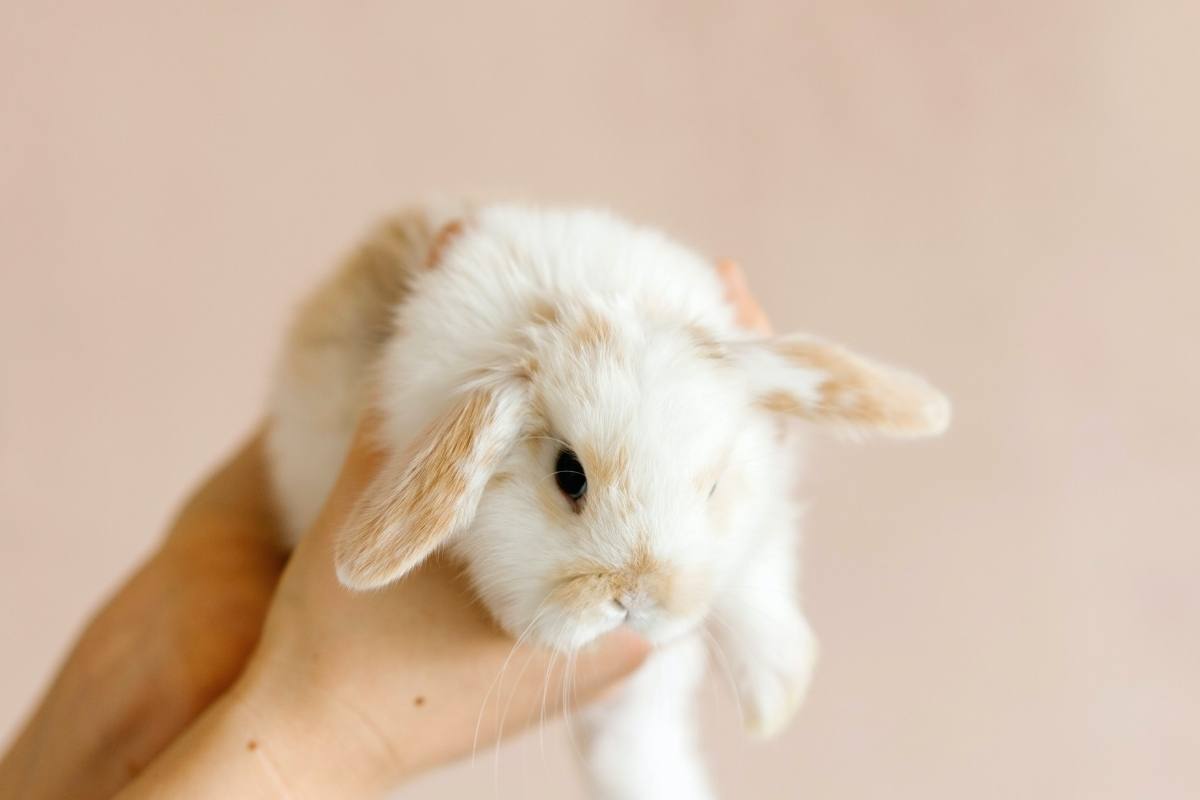A rabbit that has abandoned its usual activities to stare at the wall is a valid reason for concern. While it’s not uncommon for rabbits to spend long moments apparently gazing at nothing, their body language usually shows that they are either relaxed or attentive, giving you a clue as to what has caught their interest.
So, why is my rabbit staring at the wall? Most of the time, this is an indication that your rabbit is feeling ill or suffering pain. However, if your rabbit shows no other signs of illness, it’s possible that it’s sleeping, depressed, or simply choosing this position based on how well it can view the room around it.
In this article, we’ll look at some common health issues that could be causing your rabbit to stare at the wall. We’ll also discuss precautionary measures you can take to keep your rabbit from developing these disorders. Finally, we’ll look at a few reasons a healthy rabbit may engage in this behavior.
Your Rabbit is Sick or in Pain

Sitting back to the world and face to the wall is a common sign of a rabbit that is feeling poorly. This is because bunnies are prey animals and instinctively try to hide any signs of illness. By facing the wall, they may be avoiding contact and essentially trying to disappear by shutting out their surroundings.
Because rabbits are very habitual, a sudden deviation from their usual habits should always have you taking a second look. The more familiar you are with your rabbit’s normal behavior, the more quickly you will notice if something is not right.
Along with staring at the wall, the following signs are almost always symptoms of a health issue and should prompt a visit—or at the very least a call—to your exotic vet.
– Loss of appetite: Rabbits are almost constantly nibbling or grazing—which is why it’s essential to provide them with an unlimited amount of hay. This constant fiber intake is what keeps their digestive system working smoothly. A rabbit that has stopped eating likely has a digestive issue and can worsen quickly.
– Abnormal poop or an absence of poop: Continual eating means continual pooping. Anything off with your rabbit’s fecal matter is cause for serious concern.
– Avoidance or aggression: A rabbit that doesn’t want to be touched or handled may be in pain.
– Lack of energy and alertness: Unusual lethargy or disinterest, which sometimes takes the form of a rabbit staring at the wall, can both be signs of illness.
– Abnormal vocalization: Rabbits growl when they are upset or don’t want you near them. A sharp, teeth-grinding sound can also indicate that they are in pain, although the same sound (usually much softer) can mean they are happy.
– Dull or thinning fur: Skin and fur condition is a good indicator of an animal’s overall health.
– Weight loss, drooling, or swelling: Rabbits’ teeth continue to grow throughout their lifetime and can sometimes become overgrown. This not only prohibits your rabbit from eating properly, it can also cause sores within its mouth.
– The sniffles: A bacteria infection may show up by compromising your bunny’s delicate respiratory system, causing running eyes and nose and sneezing.
– Hunched posture: If you are paying attention, it’s not difficult to tell if your rabbit is in pain, especially if it’s due to a digestive issue (which for rabbits, it often is). The bunny may be holding itself in a tense, hunched position and may press its stomach against the ground or shift repeatedly as if trying to stretch out the pain.
– Odd movements: Stumbling, staggering, or a chronically tilted head can also be symptoms of pain or disease.
Common Illnesses that May Cause this Behavior

Although it’s important to take your rabbit to the vet as soon as you suspect a health issue, it can be helpful to know what you are dealing with. Knowing what causes these diseases will also allow you to implement preventative care. While we can’t provide an exhaustive list of health issues that can lead to your rabbit staring at the wall, we will briefly cover a few of the most common ones.
Digestive Upset
Stasis is a one of the most frequently seen health issues in rabbits. It can cause painful cramps, gas, or even a complete blockage within your rabbit’s digestive system. The most common causes are lack of sufficient crude fiber, dehydration, stress, overgrown teeth, and internal infections. Although stasis is easy to treat if it’s caught early enough, it can also be fatal if left untreated.
The best ways to prevent your rabbit from getting stasis include:
- feeding the recommended serving of pellets and fresh produce along with an unlimited amount of grass hay
- making sure your rabbit always has access to fresh water
- allowing your rabbit plenty of time out of its cage to run around and stay active
Sore Hocks
A rabbit with sore, raw, or inflamed feet may have a condition known as sore hocks. This can be caused by the rabbit being on slick, hard, or wire floor. Arthritis, obesity, and other conditions can also cause sore hocks.
The best ways to keep your rabbit from developing sore hocks include:
- keeping them indoors on a comfortable, flexible flooring
- feeding an appropriate, well-balanced diet
- checking hocks regularly for any signs of soreness
Torticollis
Strokes, infections, cancer, and trauma may all show up in rabbits as torticollis, or “head tilt.” A rabbit whose head suddenly seems to have become permanently tilted to one side or who shows any other odd changes in motion like stumbling, should see a vet as soon as possible.
Additional Reasons Your Rabbit May Stare at the Wall

While a health check should always be your first step in determining why your bunny has taken to staring at the wall, there are a few non-health related issues that could be causing this behavior.
Eyes, Ears, and Nose
The first possibility is that your rabbit is asleep, as bunnies do sometimes snooze with their eyes open. Another thing to consider is that a rabbit’s eyes are on the sides of its head—so when it’s facing the wall, it’s not necessarily staring at the wall. Its view is actually best to either side.
Some bunnies choose to relax in an area where they can see you or much of their surroundings. Try getting down on your rabbit’s level in the area where it most often sits facing the wall. Look around. Can your bunny see your favorite chair from there? Is most of the living room visible in its peripheral vision?
Finally, your rabbit may be able to hear something in the wall or on the other side of the wall that has caught its interest—or it may like the scent of something near where it sits staring at the wall. Sounds and smells that are almost unnoticeable to us can hold a rabbit’s attention for a surprising amount of time.
Displeasure, Depression, or Fear
A bunny may occasionally show its displeasure by turning its back on you. If you notice that your rabbit takes up its position staring at the wall after you have done something to displease it, this may be the reason. The behavior of a rabbit staring at the wall can serve as an indicator of its discontent. Freezing in a single position can also be a rabbit’s response to fear.
As social animals, rabbits can also become lonely and even depressed if they are not getting enough enrichment or have recently lost a friend. Depression may have symptoms similar to physical illness, with your rabbit losing interest in its surroundings and zoning out in the corner.
Your first consultation, of course, should be with your vet to ensure that your bunny is in good health. If the behavior is not due to physical illness, try to draw your rabbit out by increasing the time you spend with it and enriching its lifestyle.
- Be generous with your affection.
- Offer plenty of healthy treats and fresh veggies or greens.
- If your rabbit is usually confined to a single room or hutch, allow it more time out of this area to run around and explore.
- Give your rabbit access to sunlight.
- Let your rabbit spend some time outdoors in a fenced area or on a leash. Just stay close by and keep an eye open for anything that could frighten or harm it.
- Provide bunny toys. These can be store-bought items or safe, chewable things like cardboard tubes or boxes and unsprayed fruit tree branches.
Conclusion
Rabbits are sensitive animals with complex systems, and the first sign of many diseases can be subtle. The sooner you notice a health issue, the less serious it is likely to be, so if your bunny has taken to staring at the wall, it’s important to consider whether it is showing any other symptoms of pain or illness.
Then you can look into addressing other possible reasons behind this behavior.

